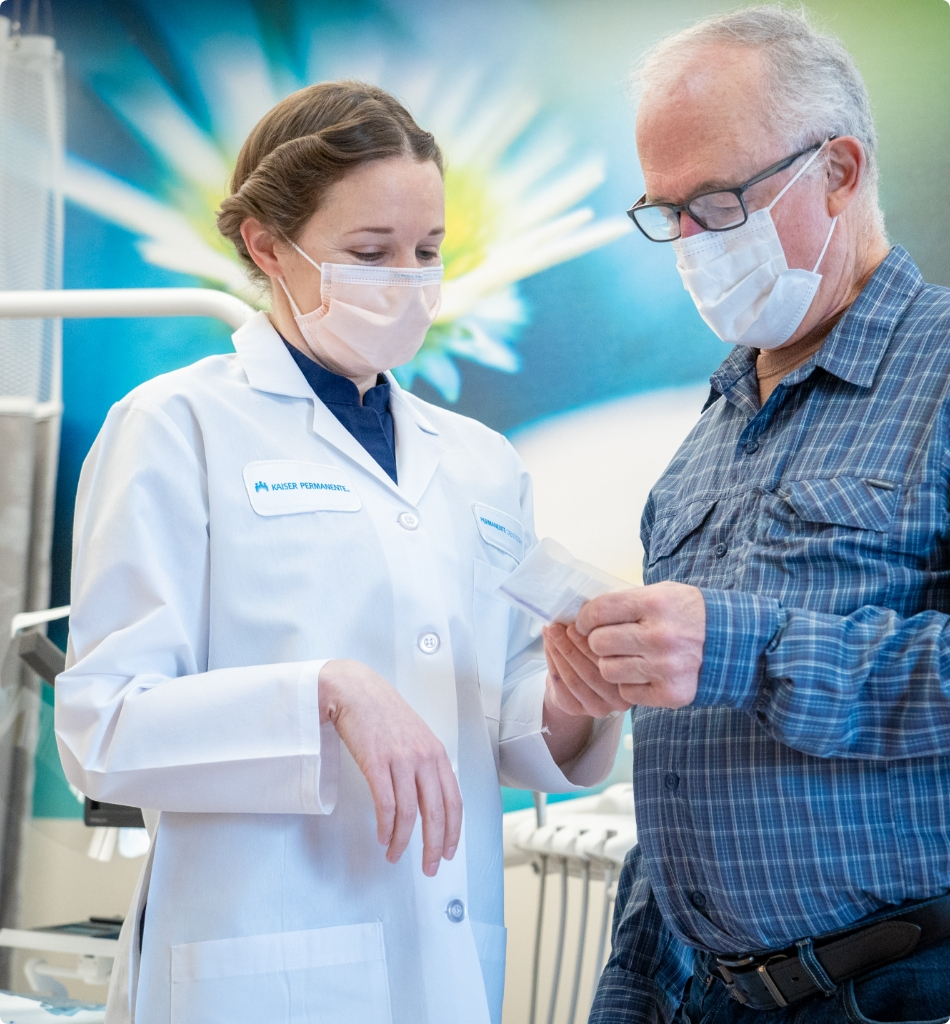
After your exam, your dentist will share your dental results. Your dentist will also talk with you about treatment and hygiene needs. Each time you return for routine care, we encourage you to see your personal dentist.
When you call to make your first appointment, please let us know if you would like to share dental X-rays from your previous dentist with us. Depending on factors such as image quality and how recently the X-rays were taken, we may be able to use them for your first dentist appointment with us. Dental X-rays are proven safe and are necessary for us to do a comprehensive assessment of your oral health.
©2024 Kaiser Foundation Health Plan of the Northwest